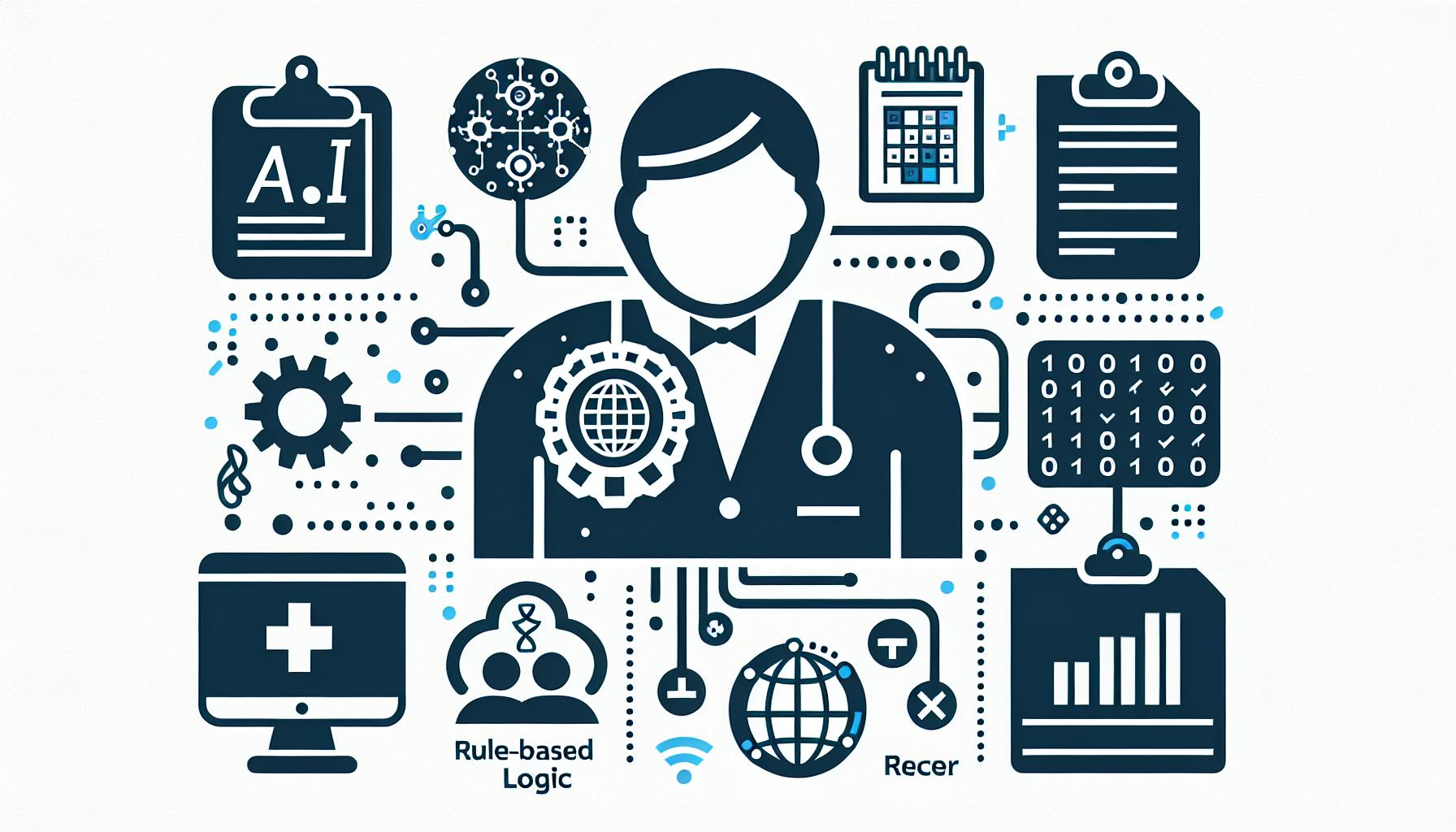Accelerating Healthcare Software with Human-In-The-Loop AI Systems

Introduction
In the fast-paced world of healthcare, the precision and dependability of software systems are not just desirable; they are essential. With the integration of Artificial Intelligence (AI), the development and functionality of healthcare applications have taken a giant leap forward. This article delves into the transformative role of AI agents in enhancing healthcare software through automation and human oversight, ensuring both operational efficiency and patient care quality.
AI systems, especially those utilizing rule-based logic, have the potential to automate complex tasks such as debugging software, integrating seamlessly with patient management systems, and ensuring adherence to stringent privacy laws. However, the role of human intervention remains crucial, particularly in interpreting ambiguous patient data and maintaining ethical standards. Let's explore how AI-augmented systems like patient scheduling and automated medical record updates are changing the landscape of healthcare, supporting professionals in delivering better care and improving operational workflows.
AI Agents in Healthcare Software Development
The integration of AI agents into healthcare software development marks a significant advancement in the industry. These AI systems utilize rule-based logic to automate various processes, which significantly reduces the margin for error and enhances the overall reliability of healthcare applications. For instance, in the debugging phase, AI agents can quickly identify and rectify errors, saving developers countless hours and ensuring that the software functions smoothly and efficiently.
Moreover, AI agents facilitate seamless integration with patient management systems. This integration is crucial for maintaining accurate and up-to-date patient records, which are essential for providing high-quality care. By automating these processes, healthcare providers can focus more on patient care rather than administrative tasks, thus improving both the quality and efficiency of the services provided.
Ensuring Compliance and Ethical Standards
One of the most critical aspects of healthcare software is compliance with privacy laws and ethical standards. AI agents play a pivotal role in ensuring that healthcare applications adhere to these regulations. By implementing rule-based logic, AI systems can automatically monitor and enforce compliance, thus minimizing the risk of data breaches and ensuring patient confidentiality.
However, despite the capabilities of AI, human oversight remains indispensable. In scenarios where patient data is ambiguous or ethical dilemmas arise, human intervention is necessary to make informed decisions. This human-in-the-loop approach ensures that AI systems support healthcare professionals without compromising ethical standards or patient trust.
Use Cases: AI-Augmented Systems in Healthcare
AI-augmented systems have found several applications in healthcare, enhancing both patient care and operational efficiency. One such application is AI-augmented patient scheduling systems. These systems use AI to optimize appointment scheduling, reducing wait times and improving patient satisfaction. By analyzing patterns and predicting patient flow, AI systems can efficiently allocate resources and streamline operations.
Another significant application is the automation of medical record updates. AI agents can automatically update patient records, ensuring that healthcare providers have access to the most current information. This automation not only reduces the administrative burden on healthcare staff but also minimizes the risk of errors, thereby enhancing patient safety.
Conclusion
The integration of AI agents into healthcare software is a game-changer, offering numerous benefits ranging from increased efficiency to enhanced patient care. By automating routine tasks and ensuring compliance with privacy laws, AI systems allow healthcare professionals to focus on what they do bestócaring for patients. However, the importance of human oversight cannot be overstated. Human intervention is essential in interpreting complex data and making ethical decisions, ensuring that AI systems operate within the bounds of trust and integrity.
As we look to the future, the potential for AI in healthcare is immense. With continued advancements, AI agents will become even more integral to healthcare operations, supporting professionals in delivering superior care. For those interested in further exploring this topic, engaging with experts in AI and healthcare, attending relevant conferences, and staying updated with the latest research are excellent next steps.
FAQs
What is Human-In-The-Loop AI?
Human-In-The-Loop AI refers to systems where human judgment is incorporated into the AI process, particularly in tasks requiring ethical decision-making or interpretation of complex data.
How do AI agents enhance healthcare software?
AI agents enhance healthcare software by automating tasks such as debugging, integrating with patient management systems, and ensuring compliance with privacy laws, thus improving efficiency and reliability.
Why is human oversight necessary in AI systems?
Human oversight is necessary to interpret ambiguous data, make ethical decisions, and ensure that AI systems operate within the framework of trust and integrity.
What are some applications of AI in healthcare?
Applications include AI-augmented patient scheduling systems, automated medical record updates, and compliance monitoring, all of which improve operational efficiency and patient care.
What is the future of AI in healthcare?
The future of AI in healthcare is promising, with potential advancements leading to even greater integration and support for healthcare professionals in delivering superior care.




